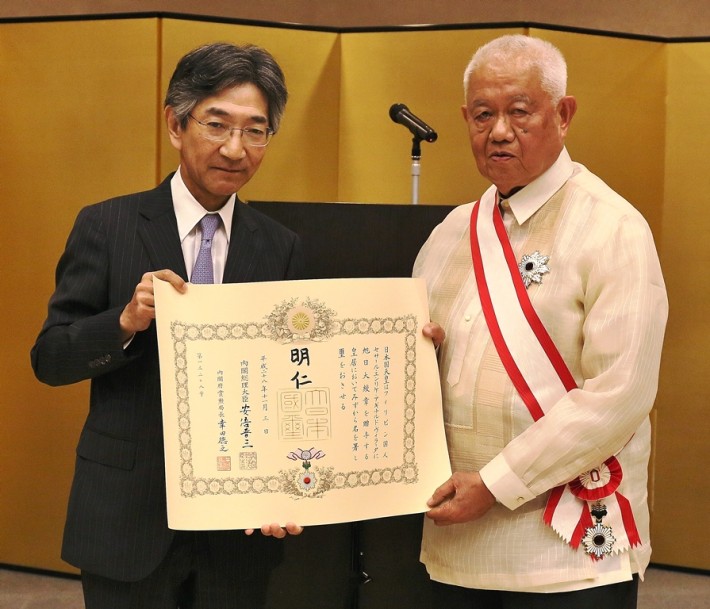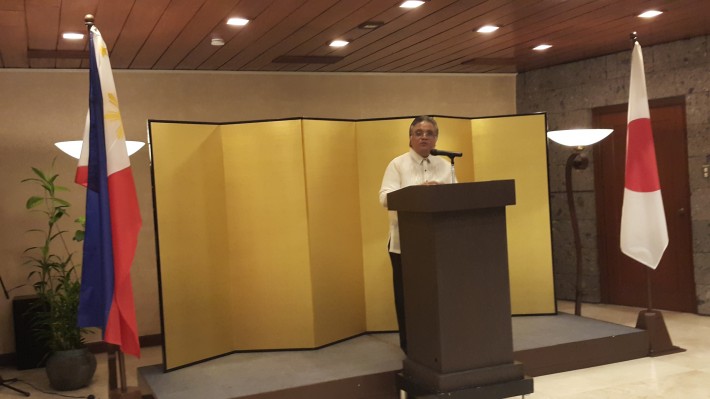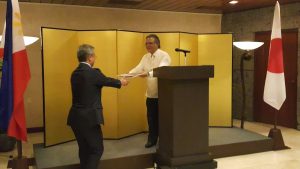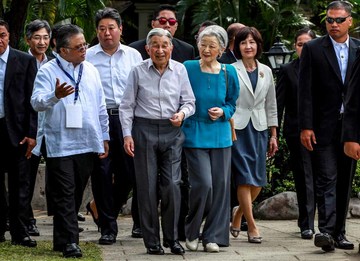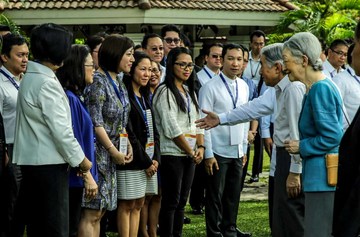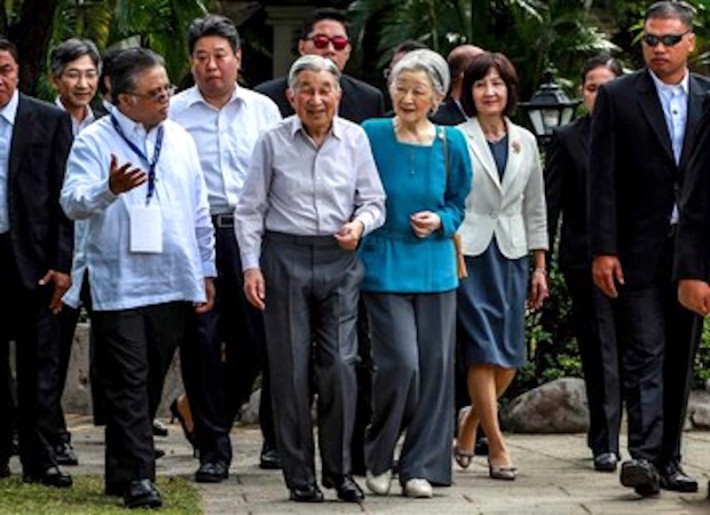The Nihongo Center Foundation (NCF) together with the Japan Foundation Manila Office (JFMO) officially welcomed the 9th batch of Filipino Nurses and Care Workers who will undergo the Preparatory Japanese-Language Training Program under the Japan-Philippines Economic Partnership Agreement (JPEPA).
Key speakers graced the opening ceremony held last November 4 at the President Jose P. Laurel Hall of The Philippines-Japan Friendship Center – Manila. They included NCF President Philip Sanvictores, JFMO Director Hiroaki Uesugi, and Director Nimfa de Guzman of the Welfare Employment Office of the Philippine Overseas Employment Agency (POEA). Head teacher for the program, Josef Orillio-sensei and Secretary Hiroyuki Enoki, Labor Attache of Japan in the Philippines who all gave their inspirational words to the more than 100 candidates present at the event.
The training will run for six months — until May 19, 2017. Thereafter, the students will undergo another six months of training at a Japanese language institute in Japan before finally getting assigned to hospitals and caregiving facilities all over the country. After building up on their experiences, the nurse and care worker candidates will be required to take the Japanese national examination for nurses or certified care workers, based on which their work in Japan would continue..
Challenges of Learning Nihongo
About learning Nihongo, Pres. Sanvictores explained the challenges that lie ahead:
“…in Japan – at your work place, when you meet people – you will have to speak and use proper Nihongo so that you don’t get misunderstood. It’s not as if you put a USB drive into your head and then you speak perfect Nihongo. Learning Nihongo will take time, it will take effort, it will take your passion, and dedication.”
Moreover, Orillio-sensei explained that learning a language is like becoming a child again and that it is deeply connected to customs and culture:
“These coming months of language training will be a time of discovery. I invite all of you to meet this challenge with the open-mindedness and the enthusiasm of a child discovering a way to make his feelings and thoughts understood, and experience the wonder of sharing a common language that can bridge the distance between nations and cultures.”
Support and Encouragement
Director Uesugi, meanwhile, encouraged the students to study hard but also to enjoy their time in the program:
“We will do the best we can to help you learn Japanese language as quickly and as effectively as possible while you are here. Alam kong mahirap ang Japanese Language pero sana matuto kayo nang mabuti sa pamamagitan ng programang ito. Mag-aral kayo nang mabuti at gusto ko sanang mag-enjoy rin kayo.”
Director De Guzman had more words of support for the select group of participants:
“Our advice is for you to just believe in yourself, follow the teachings of your sensei (teachers), enjoy while imbibing the unique and beautiful culture of Japan and by the Grace of the Almighty, you can do it (pass level N5 of the Japanese Proficiency Test)—and who knows, even better!”
Reading a speech on behalf of Japanese Ambassador to Manila, Amb. Kazuhide Ishikawa, Secretary Hiroyuki Enoki conveyed that the Ambassador is very happy about the development of the program and would like to extend his gratitude to the people and organizations behind it:
“I would like to congratulate our 9th batch of kangoshi and kaigofukushihi candidates on passing the selection and matching process.
I would like to conclude my remarks by expressing my gratitude for everyone who is behind this program, most especially for our friends at DOLE, POEA, TESDA, Japan Foundation, Nihongo Center Foundation, and PAD Foundation. I commend all of you for your hard work in contributing to the success of this program for nurses and careworkers. With the new chiefs of the Philippine government agencies, we would like to continue our effort for the further improvement of this program.”
As a reply to the words of support and encouragement, Ms. Marian Vanessa Cristobal Lualhati spoke on behalf of her fellow students. “I am now 30 years old and came to the point in my life wherein I want to make something bigger and more meaningful, as such I am joining JPEPA,” said the nurse who has been working at the Department of Social Welfare and Development (DSWD) for nine years.
Lualhati added, “I believe that caregiving is one of the most gratifying jobs…Taking care of someone can transform life — mine, yours, ours — forever. That is what life is all about.”
For the 9th batch, as with previous batches, the objective of the program is to help candidates acquire basic knowledge and usage of Nihongo and learn specific terms and expressions essential for their line of work. They will also be given lectures on culture and general life in Japan and how to develop habits for continuous and autonomous learning even after they graduate from the program.
Resources:
Full speeches of the key speakers:
Philip B. Sanvictores, NCF President
Hiroaki Uesugi, JFMO Director
Nimfa de Guzman, POEA
Amb. Kazuhide Ishikawa, Japanese Embassy, Manila
(delivered by Hiroyuki Enoki, Labor Attache of Japan in the Philippines)
Josef Orillio, Program Head Teacher
Marian Lualhati, Student Representative
Photo Album


